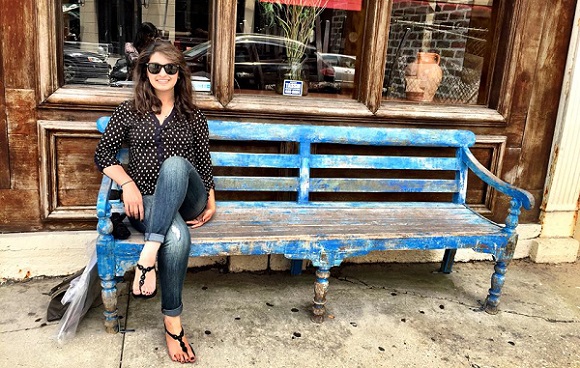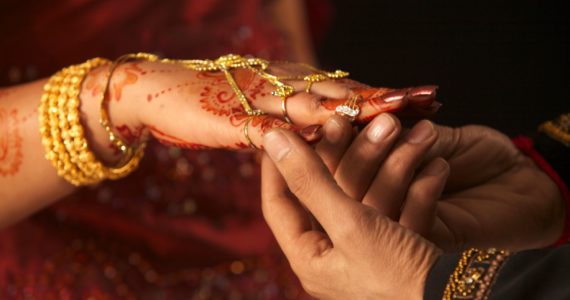Source: https://www.patheos.com/blogs/altmuslim/2015/06/not-your-parents-marriage-advice-for-muslim-relationships-in-the-modern-era/

Editorial Note: Zainab F. Chaudary wrote a post, “Girl Bachelor” for the Love, InshAllah blog that struck a real nerve with readers around the world. What is wrong with choosing yourself? Making yourself a priority, and then being open to a relationship. Why are we still wringing our hands over a purported Muslim marriage crisis? Maybe our approach needs to change. Here, she explores this subject more and
By Zainab F. Chaudary
Close your eyes and imagine for a moment what your life would look like if you knew you’d never find romantic love. What would you do differently? What would fulfill you? How would you feel about where you are now?
Thought Catalog posited a similar conceit in a recent blog post. The takeaway question was: why do so many of us stop to wait for our real lives to begin?
While the marriage question is not one the Muslim-American community has a monopoly on, it is the one that defines much of our internal angst. Over the past few weeks, three of us have tackled how to perceive the single life in the face of community stigma, but none of us have talked about solutions. On this front, I suspect, there is still much to say.
It was a wonderfully kind, thoughtful response from a 34-year-old single Muslim man to my last piece that set off this reflection. He had follow-up questions, and in trying to come up with an engaged response, I found myself ruminating. And in ruminating, I found a whole ‘nother post on my hands.
This “marriage problem” is no longer constrained around single Muslim men and women of a certain age; its impact has bled into other generations, apparent in the severe anxiety of our elders and the nervous angst of our youngsters. It is also negatively impacting other areas – sociological, anthropological – and impeding our progress in society as a whole. So how do we fix this? Let me count the ways…
Discard the Superficial
Old school arranged marriages followed our parents here; they built their marriages on the foundations of their parents’ intuition. Then they came here and had to struggle – to build jobs, careers, and families from scratch, with little guidance. Somewhere along this uphill climb, and in fact because of it, our well-meaning parents added unnecessary items to the criteria of what makes a “good” spouse.
There are the things we must keep: attraction. Not a myopic concept of beauty– not the wheatish-complexioned, rail-thin trophy wife or the tall, muscular, handsome husband we are expected to find – but the person we as individuals find attractive. I like wiry, sarcastic, kinda gangly nerds. My friend likes shorter, stocky romantic-types. There is no one-size-fits-all beauty standard – it’s easy to forget that.
Along with attraction, keep intellect. Mutual respect. Honesty. Candor. Spirituality. Know all the while that relationships shift and people grow, but foundations hold. Know that he’ll get fat and have an endearing bald patch. Know that she may grapple with her belief in God. Know that you both will have less time to read about the world when your colicky 1-year-old keeps you up at night.
Things to discard: what they do for a living. Enough with the “only doctors/lawyers/engineers need apply.” What race they are. What ethnicity they are. What goddamn language system their family comes from (seriously folks, his family’s Sindhi, hers is Punjabi, and that won’t work? Because hey parents, they both barely manage Urdu sometimes). How big a house, how expensive a car, how large the bank account, how round her chappattis and how fair his skin. No. X this out.
This narrow-minded superficiality is taking a toll on our community. We do not encourage deviants, yet variation – a diversification of ideas and career paths, a healthy dose of creativity – is what drives evolution and progress. The pressure to fulfill material criteria, to check off boxes in order to be “chosen” during our most formative years is leaving scars on our community. We are growing up insecure in a world where we must be confident in order to carve out
Know that Love is Chance … and Love is Work
“Isn’t that how falling in love so often works? Some stranger
appears out of nowhere and becomes a fixed star in your universe.”
― Kate Bollick
Love, I’ve found, is a collection of tiny coincidences that lead to a collision. You can’t predict or force it, and desperation bleeds through. Love is driven by a little magic, a little compatibility, and a lot of timing, of being in the right place at the right time – geographically, temporally, mentally, emotionally. My coupled friends – Muslim and non-Muslim alike – tell stories of how they met, and some are downright miraculous. The best love stories are the ones where people look a little flabbergasted at their luck.
And once you find it, life doesn’t get wrapped up with a special red bow that reads “And they lived happily ever after.” Maintaining love is work.
Tend to Yourself First
Greek mythology says that all humans were born with male and female parts, each person a perfect whole…until they angered the gods and were torn asunder, doomed to roam the earth looking for their ghosting other half.
That’s nice, but it’s BS. It’s not even romantic. Wrestle your demons first. You are not two half-people coming together to complete one another, but two whole people coming together to enhance one another.Be comfortable with your solitude. A German friend once confessed to me that he was a serial dater because he hated being alone. Be not afraid of your alone-ness. Live a life that is truly full – not one that you fill with things to pass the time as you wait (trust me, we know the difference between a genuine vacation smile and a “look at me and see how great my life is!” vacation smile). Do meaningful work that gratifies you intellectually and spiritually, and build deep, abiding friendships and relationships that sustain you.
Understand the Broader Societal Construct
Deviants are a problem specific to the Muslim community (see above). But the falling marriage rates, the larger numbers of single women, the lower birth rate, and the confusion of dating in the digital age? These are broader societal changes that are the result of higher education and higher income rates for women, and a slow but steady gender equalization. STOP THE HAND WRINGING. The hysteria of this being a Muslim-specific problem ignores the larger context we live in today, and keeping those comparisons in mind will help us regain sanity.
Get to Know People, Not Their Potential
When we were younger, cross-gender relationships came easier. Marriage was miles away, friendships were simple. Now when I attend Muslim events, every interaction is fraught, every conversation loaded. The stakes seem high, the competition and pressure even higher. How can normal, healthy relationships bloom from this? We need our professional events, our spiritual events, our networking events to be about an actual exchange of ideas, not an exchange of phone numbers, and when we do attend dating events, we need to take the word “matrimonial” out of the equation and check our expectations at the door. Schizophrenic notions of waiting and dating to get to know each other, while also aiming straight for marriage are contradictory and maddening.
I stick to my premise that marriage is a want, not a need, something earned, not something guaranteed. Marriage is not for all of us, children are not for all of us, and all of this starts with one thing: honesty. I’ll channel Reagan when I say “Muslim community: it’s time to tear down these walls.” It’s time to build anew.
Zainab Chaudary works in PR and advocacy communications by day, and is a writer and geek by night. Her blog, The Memorist, ruminates upon travel, religion, science, relationships, and the past, present, and future experiences that make up a life. She tweets @TheMemorist. This post first appeared on Altmuslimah, which is not affiliated with Altmuslim.








